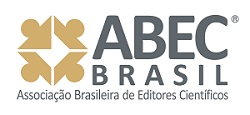Caffeinated and decaffeinated mate tea: Effect of toasting on bioactive compounds and consumer acceptance
DOI:
https://doi.org/10.5039/agraria.v15i3a8513Keywords:
antioxidant capacity, caffeoylquinic acids, Ilex paraguariensis, methylxanthines, phenolic compoundsAbstract
We analyzed the influence of toasting yerba mate on bioactive compounds contents in different genotypes and the consumer acceptance of caffeinated and decaffeinated mate teas. The influence of toasting was studied using 11 genotypes and a control sample, determining the antioxidant capacity, total phenolic compounds, methylxanthines and caffeoylquinic acids before and after toasting. In the acceptance tests, five decaffeinated and six caffeinated teas and two control samples (commercial products) were evaluated separately by 110 consumers. The toasting process reduced the levels of teas bioactive compounds, as well as differences between genotypes were found. After toasting, EC49 and EC37 showed the highest caffeine levels, while EC29 and EC51 presented the lowest levels. In relation to mate tea acceptance, the decaffeinated genotypes EC29 and EC51 performed well, and EC43 and EC33 stood out among the caffeinated ones. In both cases, the genotypes were equal or superior to commercial products. In general, decaffeinated teas were more accepted than caffeinated ones.
Downloads
Downloads
Published
How to Cite
Issue
Section
License

This work is licensed under a Creative Commons Attribution-NonCommercial 3.0 Unported License.


